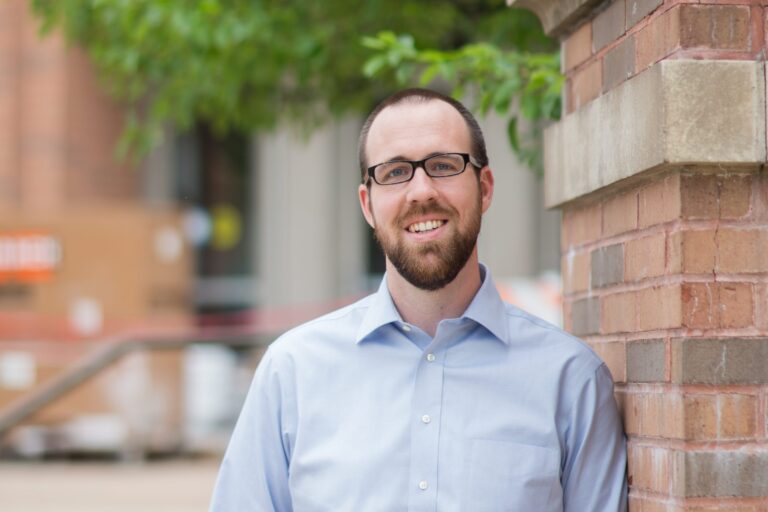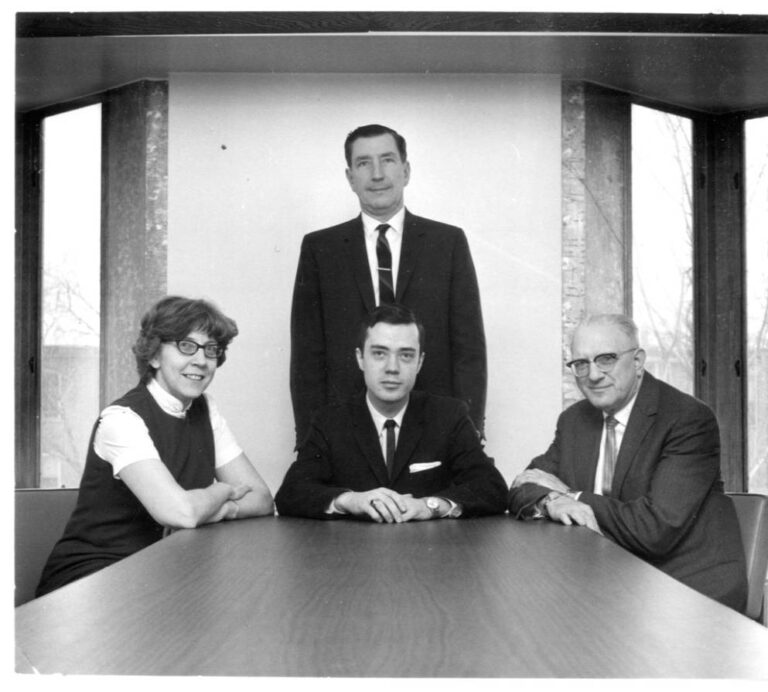This is a staff blog post written by Andy Meyer, C’06. Andy graduated from North Park in 2006 with degrees in math and biblical and theological studies. He’s currently Head of Electronic Resources and ILL at Brandel Library.

A testament to ���ϳԹ�’s distinct Christian identity and to Professor Alice Iverson
���ϳԹ� recently hosted Dr. Chris Gehrz from Bethel University to deliver a lecture titled The Pietist Option for (Current and Former) Evangelicals. In this lecture, Dr. Gehrz reflected on how pietism, a historical movement and ethos central to the Evangelical Covenant Church, could renew Evangelical Christianity.
This lecture inspired me to look back at my own experiences as a ���ϳԹ� undergraduate to see how this unique aspect of North Park’s Christian identity shaped my experience as a student. And in my reflecting, my thoughts have coalesced around a particular moment in the classroom that I see as embodying the Pietist ideals for higher education that define North Park’s mission.
As an undergraduate, I double-majored in mathematics and biblical and theology studies and eventually became interested in the intersection between the two fields. For some, the connections between mathematics and theology might seem laughable or even highly suspect. However, many Christian colleges and universities take these connections seriously. Within this realm, integrating faith and learning might look like understanding how Christian beliefs relate to mathematical axioms and truths. Another general approach would ask how Christian beliefs might guide the eventual application of this study—toward what end are you doing math? These are critical and important questions at Christian institutions. They are questions that I wrestled with as a North Park student. But, as I hope this story will illustrate, my experience as a student moved beyond these standard approaches and offered something unique.
The class was Real Analysis—a class that focused on abstract concepts and proofs. We started with a few simple axioms and progressed until we proved the Fundamental Theorem of Calculus. I remember one class period toward the end of the semester when the entire board was covered in what I thought to be a mess of unconnected thoughts. Then, in a powerful moment of surprise, Professor Alice Iverson connected the dots and I understood this otherwise incomprehensible mess.
I remember a profound feeling of awe and even gratitude that’s hard to put into words. In that moment, I remember Professor Iverson putting the cap back on the marker and telling us: “Somewhere it is written: ‘whatever is true, whatever is noble, whatever is right, whatever is pure, whatever is lovely, whatever is admirable—if anything is excellent or praiseworthy—think about such things.’” And then, while gesturing to the board, she said: “And this is True. And this is Beautiful. And we should think about such things.”
At stake here was not our intellectual understanding of the subject matter or the proof on the board. The real lesson was that we should pursue the true and the beautiful in all areas of life. In this moment I was transfixed and transformed. Or, to borrow from language the Pietists, I was converted and reborn. This is a distinctive of North Park’s Christian identity. North Park focuses not only on forming correct opinions or on providing a Christian approach within a given discipline but also focuses on building a lifelong orientation toward the good, true, and beautiful.
And Professor Iverson’s concluding remark that “we should think about such things” was not a command from a teacher to a student. It was an exhortation that applied to us all—teacher and students—equally. Friendships with fellow math majors and my relationship with Professor Iverson embodied North Park’s focus on community-based Christian higher education.
This memory stays with me. The verses that Professor Iverson recited that day were read at my wedding and encapsulate much of what I learned as a student at ���ϳԹ�. In my current role in the Brandel Library, I work to support this educational missional by serving a community of students, faculty, and staff engaged not only in learning but also in transformation.


